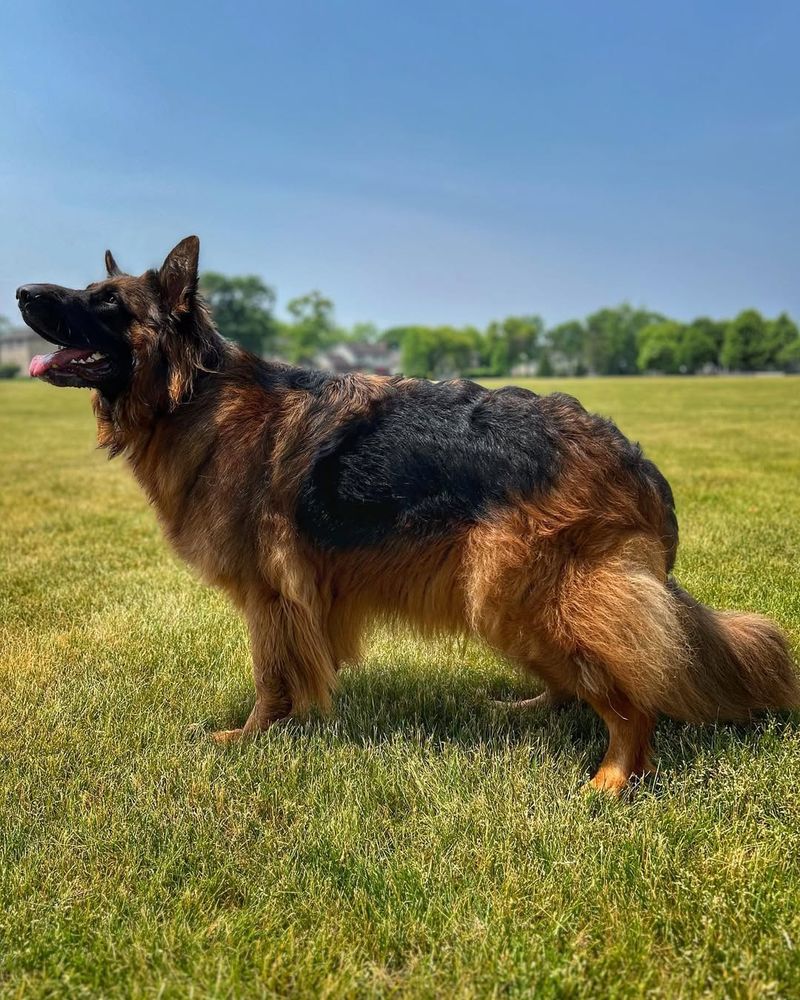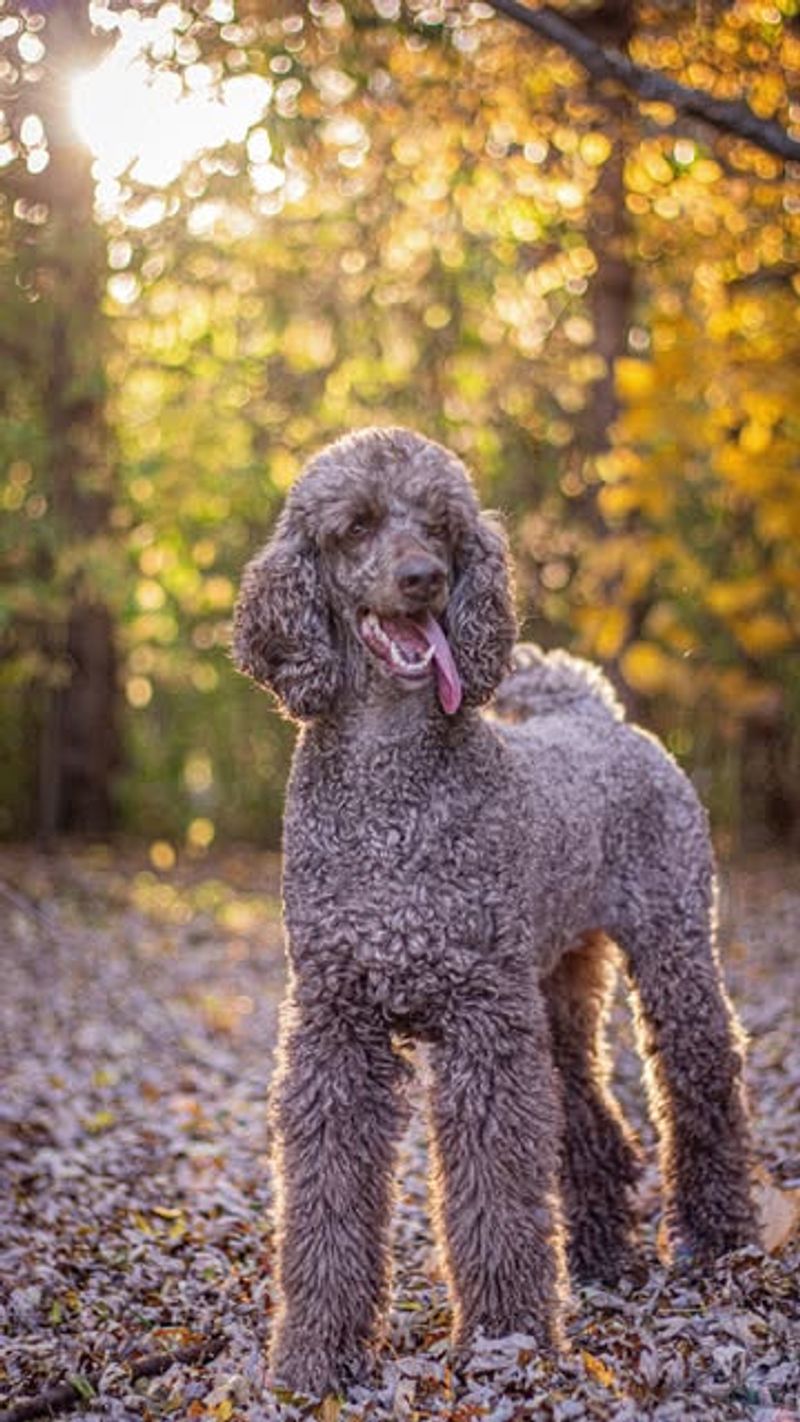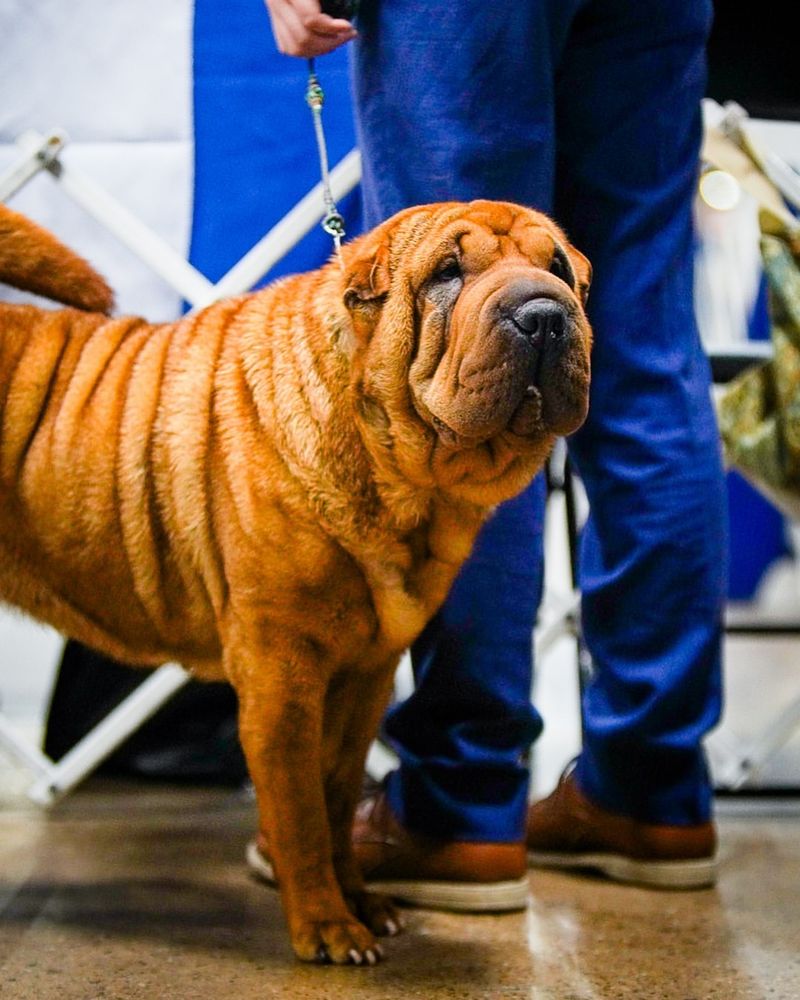Certain dog breeds are more prone to genetic health issues due to specific hereditary traits. Understanding these risks can help potential pet owners make informed decisions and take proactive measures to ensure the well-being of their furry companions. Here, we explore 15 dog breeds that are particularly susceptible to genetic health problems, shedding light on the conditions they face and providing insights on care and prevention.
Bulldog
Bulldogs are known for their charming appearance and friendly nature, but they are also prone to several genetic health issues. These lovable dogs often face respiratory problems due to their brachycephalic skull structure. In addition, Bulldogs can suffer from hip dysplasia, which affects their mobility. Regular vet check-ups and a healthy diet are crucial to managing these conditions. Owners should be mindful of their Bulldog’s weight to prevent exacerbating joint issues. Despite these challenges, with proper care and attention, Bulldogs can lead happy lives, enriching their owners with love and companionship.
German Shepherd
German Shepherds are highly intelligent and versatile, but they are not without health concerns. They are prone to hip and elbow dysplasia, which can lead to arthritis. Regular exercise and maintaining a healthy weight are essential to mitigate these issues. Additionally, German Shepherds may experience degenerative myelopathy, a progressive spinal cord disease. Early detection and supportive care can improve their quality of life. Owners should be proactive in monitoring their dog’s health and consult veterinarians for tailored advice. Despite these challenges, German Shepherds remain loyal and protective companions, beloved by families worldwide.
Golden Retriever
Golden Retrievers are adored for their friendly and tolerant nature, but they can be prone to genetic health problems. Hip dysplasia and heart issues such as subvalvular aortic stenosis are common concerns. Regular veterinary visits and heart screenings are advisable. These dogs may also develop certain cancers, like lymphoma, requiring vigilant health monitoring. A balanced diet and regular exercise contribute to their overall well-being. Golden Retrievers’ affectionate disposition earns them a special place in families, and with proper care, they can enjoy vibrant lives, spreading joy and warmth wherever they go.
Pug
Pugs, with their adorable appearance and lovable personality, face several genetic health challenges. Their flat faces can lead to breathing difficulties, particularly in hot weather. Additionally, Pugs are prone to obesity, which can strain their joints and exacerbate breathing issues. Regular exercise and a controlled diet are essential for maintaining their health. Eye problems, such as corneal ulcers, are also common due to their prominent eyes. Owners should provide protective eyewear for outdoor activities. Despite these challenges, Pugs bring immense joy to their families, offering affection and entertainment with their playful antics.
Dachshund
Dachshunds, known for their distinctive long bodies and energetic nature, are susceptible to genetic health issues. Intervertebral disc disease (IVDD) is a common concern, affecting their spinal health. Preventative measures, such as avoiding excessive jumping and maintaining a healthy weight, are crucial. Dachshunds are also prone to obesity, which can worsen spinal problems. Regular exercise and a balanced diet help manage their weight. Despite these challenges, Dachshunds are beloved for their lively spirit and unwavering loyalty. Owners can ensure a happy and healthy life for their dogs by staying informed and attentive to their specific needs.
Boxer
Boxers are known for their exuberant energy and affection, but they face several genetic health issues. Heart conditions, such as aortic stenosis, are common and require regular cardiac evaluations. Boxers are also prone to cancers, including lymphoma and mast cell tumors. Early detection and treatment are essential for managing these conditions. Additionally, Boxers may experience hip dysplasia, affecting their mobility. Maintaining a healthy weight and providing joint supplements can help. Despite these health challenges, Boxers are cherished for their playful and loyal nature, bringing joy to their families with boundless enthusiasm and affection.
Rottweiler
Rottweilers are robust and powerful dogs, yet they are prone to certain genetic health issues. Hip and elbow dysplasia are common concerns that can lead to arthritis. Regular vet check-ups and maintaining a healthy weight are crucial to managing these conditions. Rottweilers are also susceptible to heart problems, such as subvalvular aortic stenosis. Regular heart screenings are advisable. These dogs may develop bone cancer, particularly osteosarcoma, requiring vigilant health monitoring. Despite these challenges, Rottweilers are loyal and protective companions, bringing strength and devotion to their families. Proper care can enhance their quality of life.
Cocker Spaniel
Cocker Spaniels are cherished for their sweet temperament and beautiful appearance, but they can face genetic health challenges. Ear infections are common due to their long, floppy ears. Regular cleaning and monitoring are essential to prevent infections. Cocker Spaniels may also experience hip dysplasia and eye problems, such as cataracts. Timely veterinary care and screenings help manage these issues. These dogs thrive with regular exercise and a balanced diet. Despite these challenges, Cocker Spaniels are affectionate and playful companions, bringing joy and warmth to their families with their delightful antics and loving nature.
Yorkshire Terrier
Yorkshire Terriers, known for their small size and feisty personality, are prone to certain genetic health issues. They often face dental problems due to their small mouths, requiring regular dental care. Yorkies can also suffer from luxating patellas, affecting their mobility. Maintaining a healthy weight and providing joint supplements can help. Additionally, they are susceptible to tracheal collapse, requiring careful monitoring and management. Despite these challenges, Yorkshire Terriers bring immense joy to their families with their spirited and affectionate nature. With proper care and attention, they can lead healthy and fulfilling lives.
Basset Hound
Basset Hounds, with their distinctive appearance and laid-back demeanor, are prone to several genetic health issues. Ear infections are common due to their long, droopy ears. Regular cleaning and monitoring are essential for prevention. Bassets may also suffer from hip dysplasia and obesity, which affect their mobility. A healthy diet and regular exercise help manage their weight and joint health. Despite these challenges, Basset Hounds are beloved for their gentle and affectionate nature, bringing warmth and companionship to their families. With attentive care, they can lead happy and healthy lives, delighting everyone they encounter.
Saint Bernard
Saint Bernards are known for their gentle giant demeanor, but they are prone to genetic health issues due to their large size. Hip and elbow dysplasia are common concerns, affecting their mobility. Regular check-ups and maintaining a healthy weight are crucial to managing these conditions. Saint Bernards may also experience heart problems, such as dilated cardiomyopathy, requiring vigilant monitoring. Despite these challenges, they are cherished for their gentle and loving nature, often acting as devoted family companions. With proper care and attention, Saint Bernards can enjoy fulfilling lives, bringing warmth and affection to their homes.
Poodle
Poodles, known for their intelligence and elegance, face certain genetic health challenges. They are prone to hip dysplasia and eye problems, such as progressive retinal atrophy. Regular veterinary check-ups and screenings help manage these issues. Poodles may also experience skin conditions, requiring attentive grooming and care. Maintaining a healthy weight and providing a balanced diet contribute to their overall well-being. Despite these challenges, Poodles are beloved for their playful and clever nature, thriving as both family pets and show dogs. With proper care and attention, they can lead happy and vibrant lives, enriching their owners’ lives with joy.
Beagle
Beagles are celebrated for their friendly and curious nature, but they are not without genetic health concerns. Hip dysplasia and epilepsy are common issues, requiring regular veterinary care and monitoring. Beagles are also prone to obesity, which can exacerbate joint problems. Maintaining a healthy diet and providing regular exercise are essential. These dogs may develop eye problems, such as glaucoma, necessitating vigilant eye care. Despite these challenges, Beagles bring joy and companionship to their families with their playful and affectionate demeanor. With attentive care, they can enjoy active and fulfilling lives, exploring the world with enthusiasm.
Shar Pei
Shar Peis are known for their distinctive wrinkled appearance, but they are susceptible to several genetic health issues. Skin problems, such as pyoderma, are common, requiring regular grooming and skin care. Shar Peis may also experience hip dysplasia and entropion, a condition affecting the eyelids. Timely veterinary care is crucial for these issues. Additionally, they are prone to a condition known as Shar Pei fever, characterized by recurring fevers and swelling. Despite these challenges, Shar Peis bring immense joy and loyalty to their families. With proper care and attention, they can lead happy and healthy lives.
English Springer Spaniel
English Springer Spaniels are known for their energy and enthusiasm, but they face certain genetic health challenges. Hip dysplasia and eye conditions, such as progressive retinal atrophy, are common concerns. Regular screenings and check-ups are essential for managing these issues. English Springer Spaniels are also prone to ear infections, necessitating regular cleaning and monitoring. These dogs thrive with regular exercise and mental stimulation. Despite these health challenges, they bring joy and companionship with their playful and affectionate nature. Owners should provide proper care and attention to ensure their Springer enjoys a healthy and active life.















